Blog
What is an Electrical Overload and How to Prevent It
Updated on Feb 2025
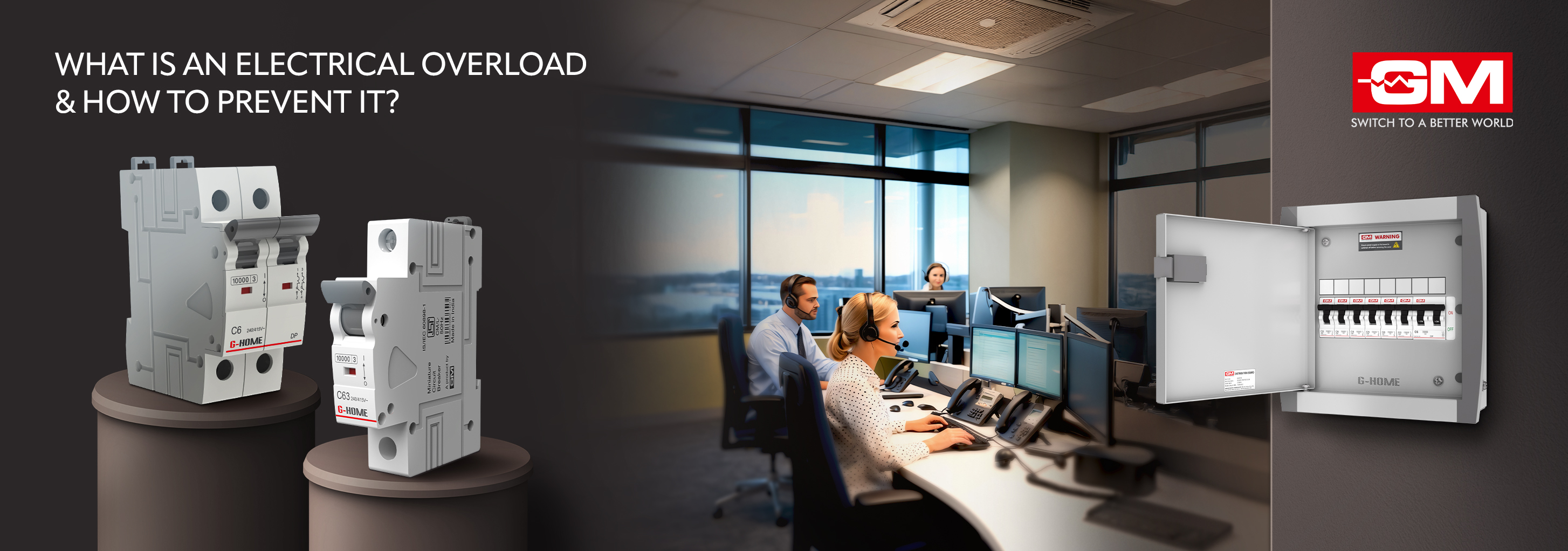
Electrical overload is a common issue that can lead to serious problems, including the risk of fires and damage to appliances. This blog delves into what causes electrical overload and provides practical tips on how to prevent it, ensuring the safety and efficiency of your home's electrical system.
Understanding Electrical Overload
An electrical overload occurs when more electrical current passes through a circuit than it can safely handle. This condition can cause the wiring to overheat, potentially leading to a fire. Common signs include tripped circuit breakers, flickering lights, and unusual buzzing or sizzling sounds from electrical outlets. It typically happens due to excessive demand placed on the circuit by running too many appliances simultaneously or by faulty or aged electrical components.
Common Causes of Electrical Overload
Understanding the reasons behind electrical overload is essential for prevention. This section explores the most frequent causes, including excessive demand for circuits, ageing infrastructure, and faulty electrical devices, which can compromise the safety of your home.
-
Excessive Demand
Plugging too many high-wattage devices into one circuit can exceed the current capacity of the wiring. -
Faulty Appliances or Wiring
Old or damaged wires or malfunctioning appliances can draw more power, leading to overload. -
Inadequate Circuit Design
Improperly designed electrical circuits that do not appropriately distribute the electrical load can easily become overloaded.
Strategies to Prevent Electrical Overload
To safeguard your home from the dangers of electrical overload, implementing effective strategies is crucial. This part of the blog outlines actionable steps such as system upgrades, proper appliance distribution, and routine maintenance to ensure your electrical system functions safely and efficiently.
Assess Your Electrical Needs
Regularly review the power requirements of your appliances and ensure they are appropriately distributed across different circuits. Avoid plugging too many high-energy devices into the same outlet.
Upgrade Your Electrical System
For older homes, it's crucial to have a professional electrician inspect and possibly upgrade the wiring and circuit breaker panel to handle modern electrical demands safely.
Install Adequate Circuit Breakers
Circuit breakers are designed to automatically shut off electrical power when they detect an overload, preventing damage and potential fires. Ensure your home is equipped with the correct type of circuit breakers that match your electrical needs.
Use Surge Protectors
Surge protectors can help manage the flow of electricity and prevent spikes that may lead to overload. They are particularly important for protecting high-value electronics and appliances.
Regular Maintenance
Schedule regular inspections with a qualified electrician to identify and resolve potential problems before they lead to serious issues. This includes checking for and repairing any damaged wires or components.
Educate Your Household
Ensure everyone in your home understands the risks of electrical overload and the importance of using electrical appliances wisely. Simple practices like unplugging devices when not in use and not overloading outlets can make a significant difference.
Electrical overload is a preventable risk that requires awareness and proactive management of your home’s electrical system. By understanding the causes and implementing measures to distribute electrical consumption evenly, you can protect your home from the dangers of overload. Regular checks and upgrades by professional electricians play a crucial role in ensuring that your electrical system is safe, efficient, and capable of meeting your daily needs without the risk of overload.
Related Blogs
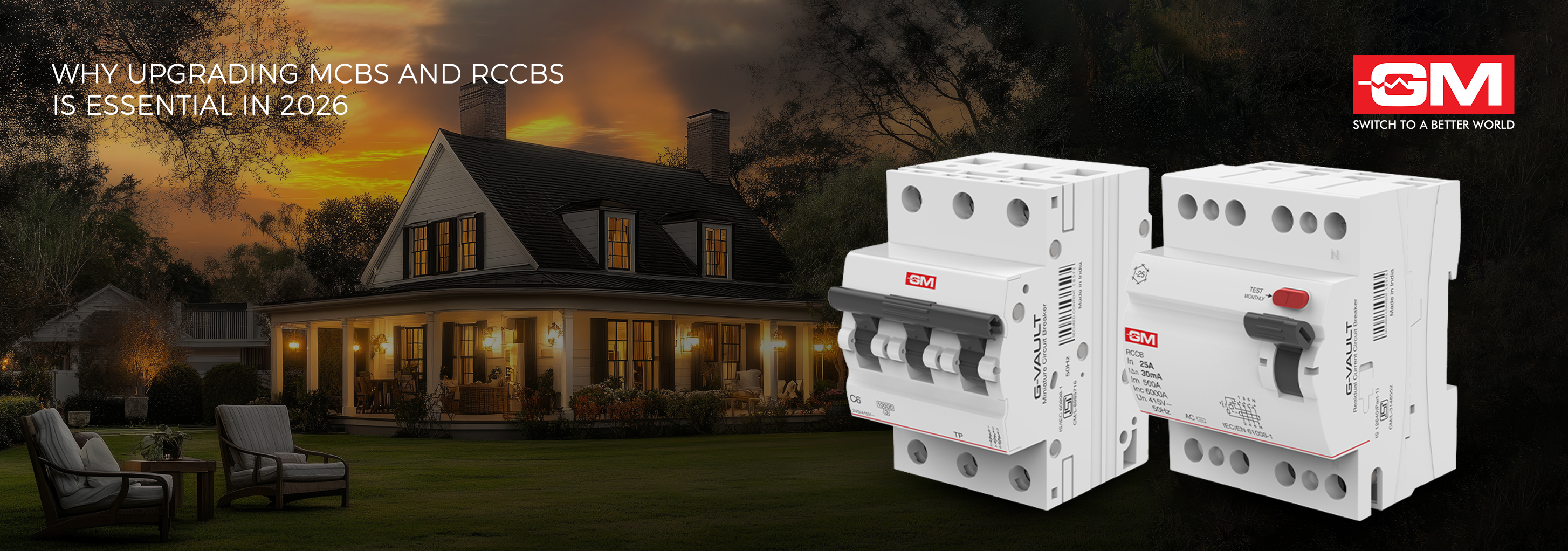
Why Upgrading MCBs and RCCBs Is Essential in 2026
Picture this: you're hosting a family dinner, the air conditioner is running, the induction cooktop is on full blast, and someone plugs in the mixer grinder. Suddenly, everything goes dark. If this scenario feels familiar, your home's electrical prot
Read More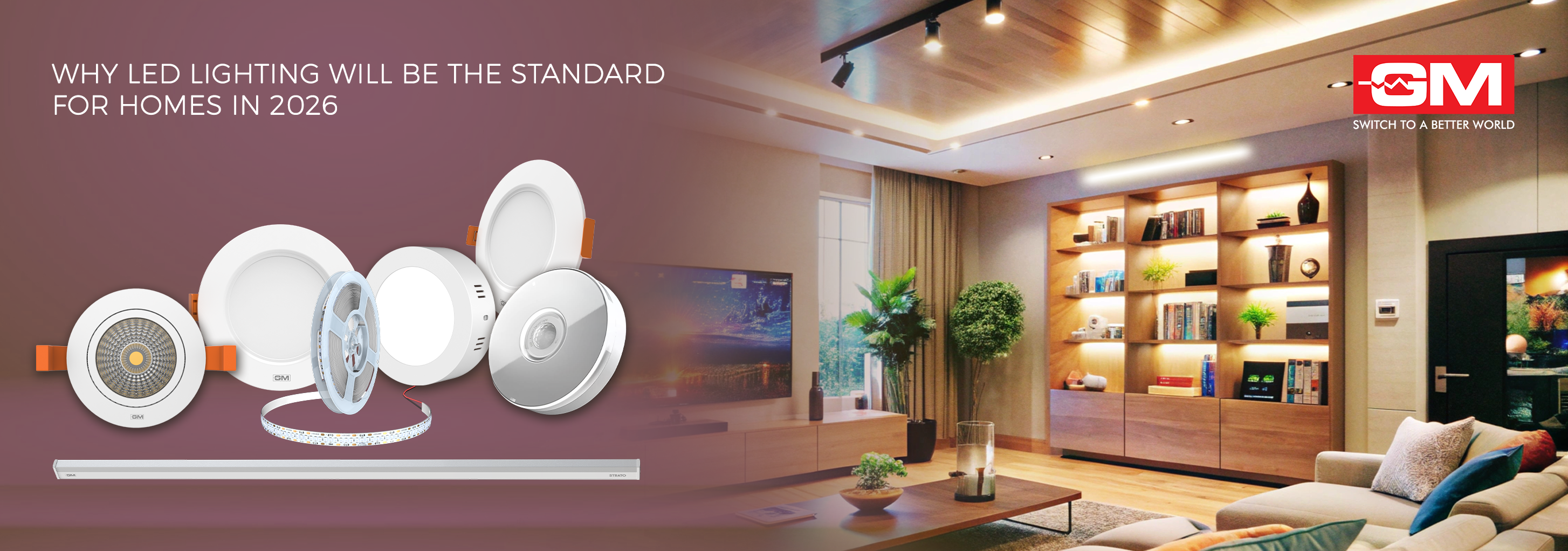
Why LED Lighting Will Be the Standard for Homes in 2026
Modern residential illumination in 2026 is defined by the strategic integration of LED strip lights. By providing a soft, indirect glow that avoids the harshness of traditional tubes, these solutions allow Indian homeowners to achieve a sophisticated
Read More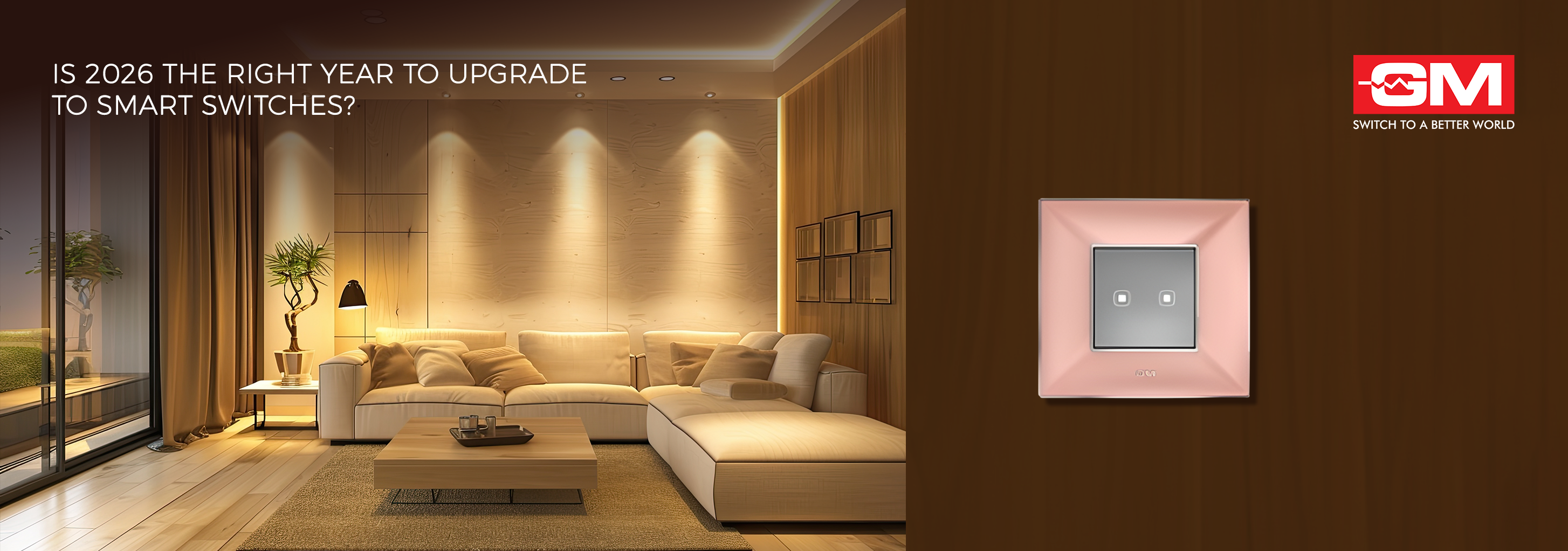
Is 2026 the Right Year to Upgrade to Smart Switches?
Picture this: you are already running late for work, and halfway to the office, a nagging thought strikes—did you turn off the bedroom AC? Now imagine resolving that worry with a single tap on your phone. This is not a distant dream anymore. Sm
Read More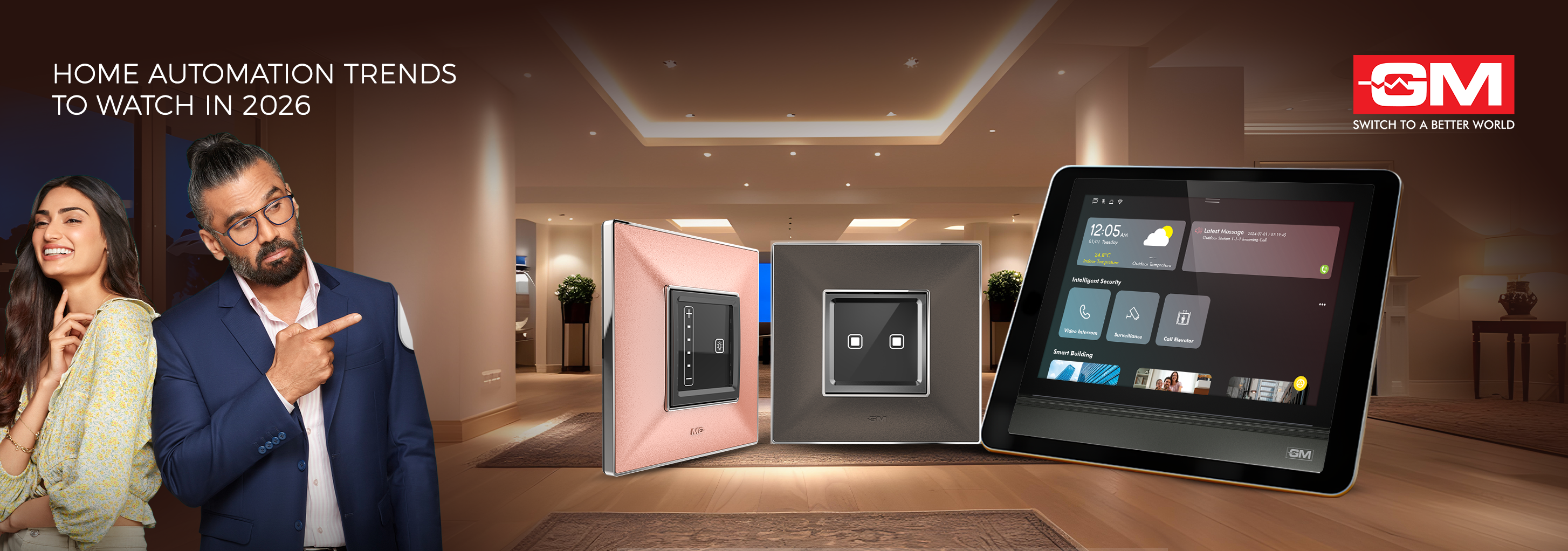
Home Automation Trends to Watch in 2026
Imagine walking into your home after a long day. The lights adjust to your preferred evening setting, the fan speeds up to counter the summer heat, and your favourite playlist begins softly in the background. No buttons pressed, no commands spoken. T
Read More